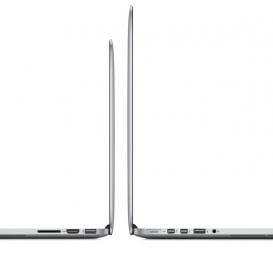Laptops are an essential piece of kit for nearly every student. They’re for work and play, and everything in between. But in a market overflowing with choice, how do you pick out a good one, and how do you make sure it’s right for you?
Here at Kettle, we’ve solved all your problems. Read on below…

The main factors you should be looking at include:
Purpose
What are you buying the laptop for? If it’s going to be used for internet surfing, writing essays and using it to watch films and listen to music, then you won’t need to buy a top-of-the-line model. However, if you’re going to be using it for more complex tasks, such as media production, photo or video editing, or for business, then you will need to look at higher specification (and therefore more expensive) models.
You also need to consider the operating system. Chrome OS is very lightweight, and can be used for most tasks including school/uni work via Google Docs/Sheets/Slides, which is a surprisingly comprehensive software suite. Windows is the most ubiqitous OS, but unless the laptop comes with Windows 10, beware. Windows 8 and 7 are dramatically worse and though possible, upgrading to 10 is a fiddly business. Mac OSX entails a higher price but also comes with added functionality, particularly for media processing.
Portability
Will you be taking the laptop around with you, or will it be sitting on your desk at home most of the time? If you are going to be traveling with the laptop, then size and weight should be a serious consideration. 3-4KG might not sound like much but when you’re hauling that to uni, around campus and back home along with the rest of the items in your bag it will be felt.
Another consideration for portability is battery life, will you need to carry the charger with you all the time? Will the charge last the lecture for you to make notes? Can you use it for long stretches in the library without charging or do you need to seek out a desk with plug sockets.
Modern laptops, particularly Chromebooks or high-end Ultrabooks, should weigh less than 1.5KG, which is perfectly feasible for a day of hauling around.

Price
Obviously this is probably the biggest factor and will limit your choices before you have even started looking. Remember that if you plan on swapping it every few years, it might be worth picking one with a residual value (like a MacBook) that you can sell on. Also remember that paying a little more often buys a significant upgrade in longevity and may work out cheaper on that basis anyway.
Processor
Often referred to as CPUs, there are hundreds of different processor models so here’s a rough guide. For a laptop, avoid anything with AMD. Go for Intel. The i3 is showing its age a bit, but the i5 and i7 are both fine. Pentium is also a little dated, but Intel Core M is pretty damn quick for most tasks.

Screen
Matte or glossy? While glossy looks better for photos and videos, matte screens have better visibility in direct light because of anti-glare. Matte also tends to be less of a fingerprint magnet, and even a little less expensive too.
Custom build or off the shelf
If you have the money then you could consider custom designing your laptop. This way to can choose everything and have a machine that is perfect for you and your needs, although these do start at slightly higher prices. Remember that laptops are almost impossible to self-upgrade, so you’re saddled with your choices. It often makes sense to bump up the RAM or processor minimum to get a few more years of use out of the thing.
What are the most important factors you consider when buying a laptop? Let us know in the comments below!









